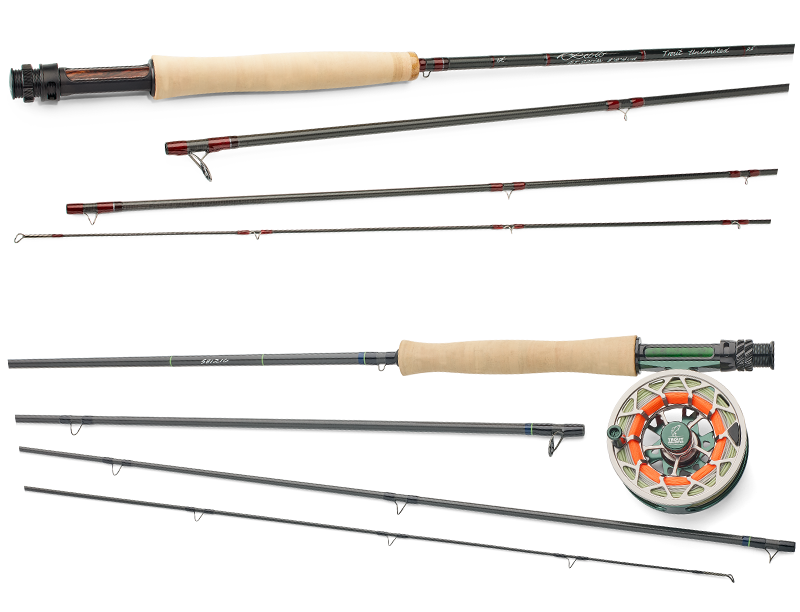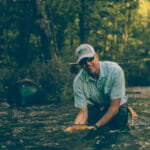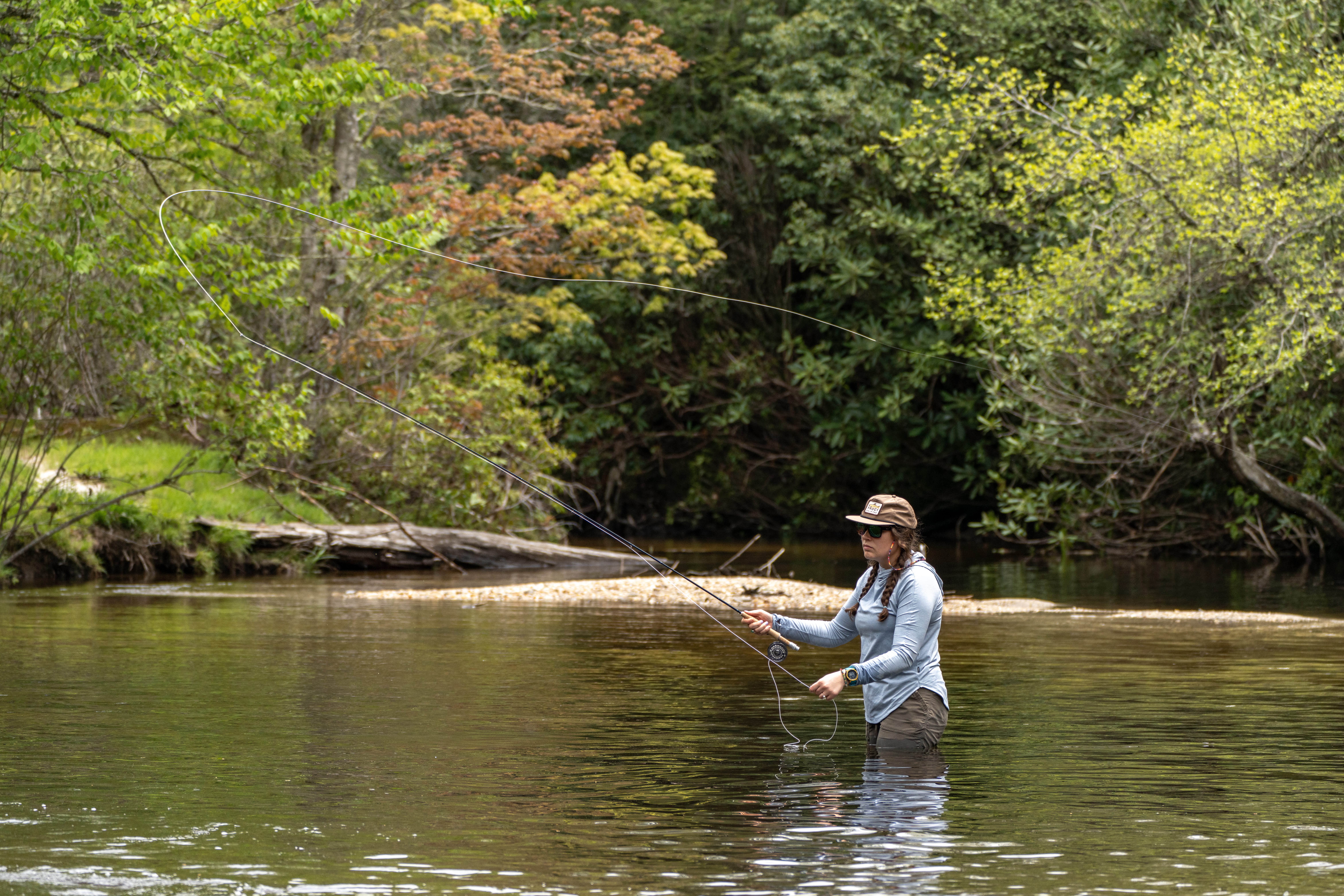Our public lands are the foundation of healthy watersheds and strong communities. From remote trout streams to working forests and rangelands, these places provide clean water, vital trout habitat and public access for all Americans. But pressures like efforts to sell off and privatize public land threaten what makes them so valuable.
This blog series highlights the people and places at the heart of these landscapes—and the practical, local perspectives keeping them accessible, productive and resilient for generations to come.
It’s a warm, sunny, southern evening and Zoe Mihalas is in her element, knee-deep in the Davidson River with a fly rod in hand.
For Mihalas, the connection to this river and the land through which it and other Appalachian trout streams flow is strong.
She grew up here, fishing, hiking and climbing since moving to the rugged wilds of western North Carolina with her family at age 12. She’s still just 22, but the past decade spent on these rivers and lands has shaped her.
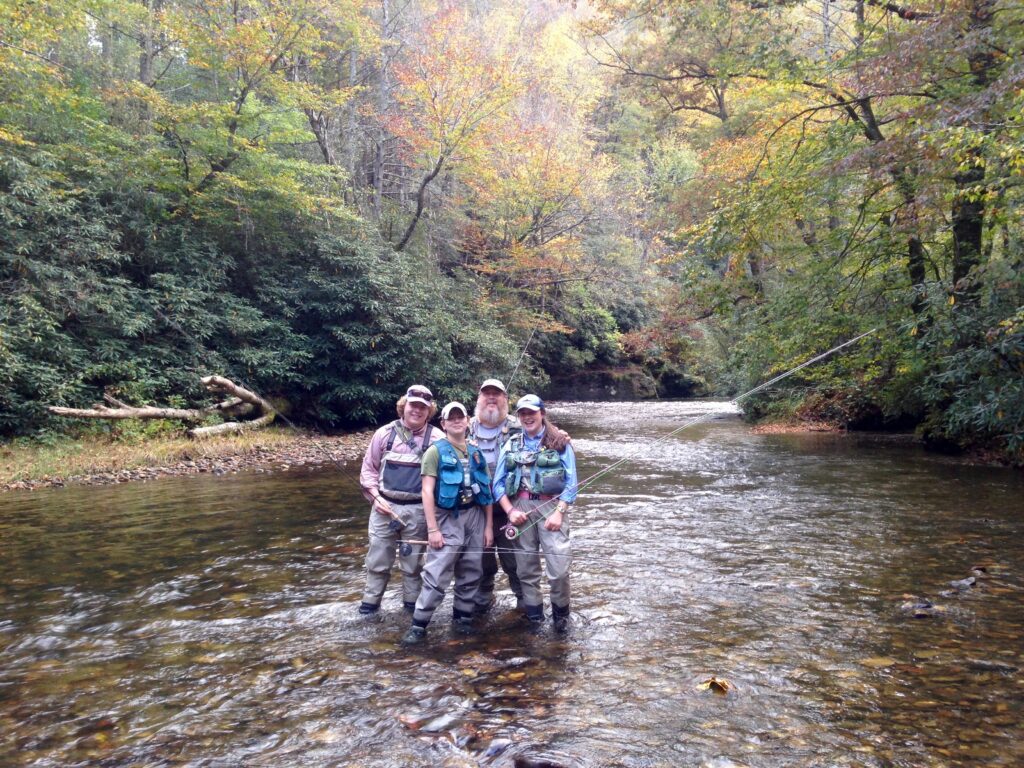
“I look at this river and there are places that have so much meaning to me,” says Mihalas, TU’s Headwaters program coordinator. “There are holes that I grew up swimming in, sliding rocks and spots where you just know you’ll always find a trout. There are all these little things. It’s magical.”
A life spent on public lands and waters
Mihalas didn’t get to this place—a place both physical and philosophical—on her own. She has taken a journey with her family and other important people in her life.
“We’ve got those pictures of me in the baby carrier on my dad’s back while he’s fly fishing,” she says with a laugh. “It’s just something we’ve always done as a family and done a lot of.”
The family lived in southern Wisconsin when Mihalas was little. She learned to fish from her dad, Mike Mihalas, and then she and her older brother Nicholas (25) and younger brother Xan (20) targeted trout in Driftless Area streams and warmwater fish in a neighborhood fishing hole they called the “Stink Pond.”
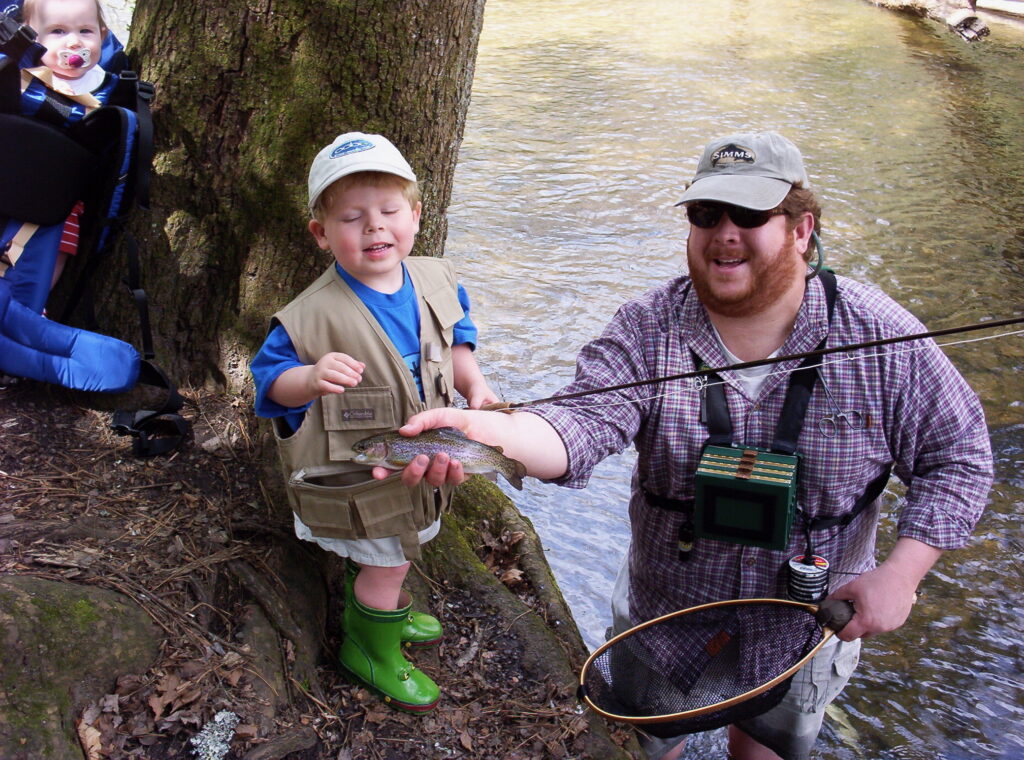
As the family looked into moving closer to family in the Southeast, access to public land was a priority.
“Southern Wisconsin has great public fishing access, but it doesn’t have a lot of what I like to call ‘wilderness,’” said Mike Mihalas. “I had read Richard Louv’s book,Last Child in the Woods, and it was a big influence on me and on our approach to parenting.”
An example would be how he and wife Nicole, a Montessori School art teacher, would invite the kids on adventures.
“It wasn’t, ‘Let’s go fishing,” he said. “It was, ‘Let’s go to the river. To the lake. To the pond.’
“If they wanted to turn over rocks, that was great. But they also learned that fishing was a pretty fun thing to do.”
A plethora of public places to play and grow
The family had vacationed in the Brevard area, and in discussions about where to settle they kept circling back to the quirky, outdoorsy city of 7,600 on the doorstep of the expansive Pisgah National Forest and near the famed Blue Ridge Parkway. The family moved to Brevard—seat of a county (Transylvania) that is 50 percent public land.
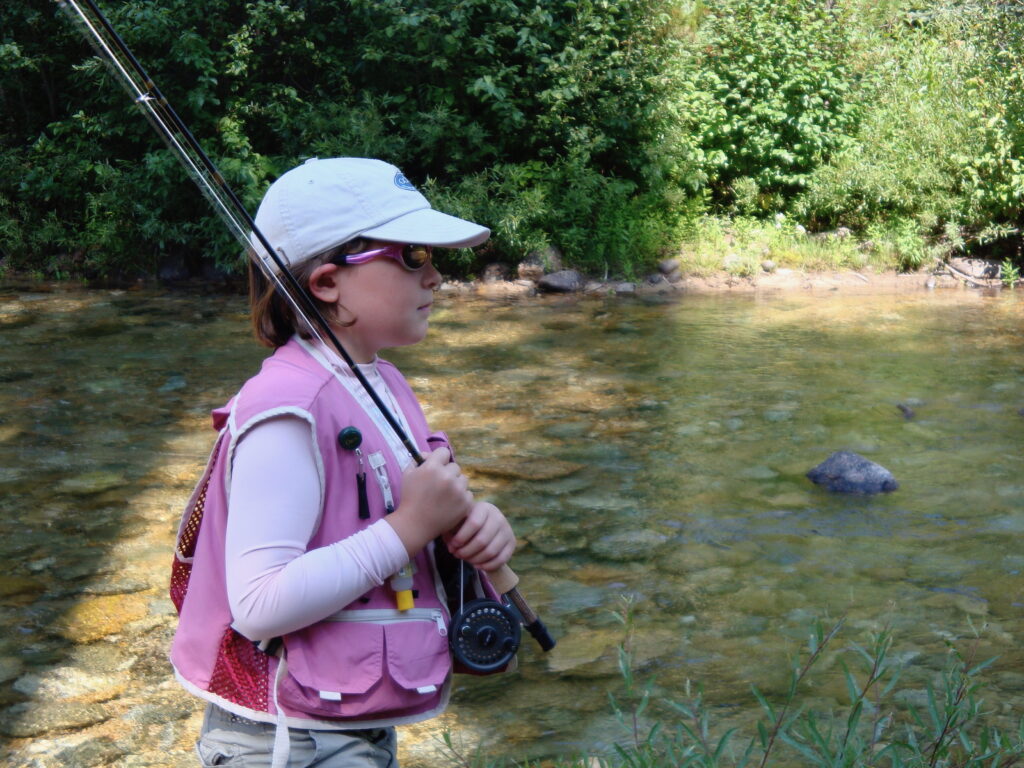
They lived in a modest house in town, but the public playground was right there.
“Public land is one of the coolest things ever,” Zoe Mihalas said. “Especially living in a place like Brevard, the amount of access is just insane, and it just feels like everything is in your backyard.”
TU: a natural fit
Mihalas and her brothers were Trout Unlimited kids, tagging along to meetings and on outings with their dad, a retired IT professional who works part-time as a fly-fishing guide and who is currently North Carolina’s representative on TU’s National Leadership Council.
In addition to volunteering with the Pisgah TU chapter, Zoe Mihalas worked as a counselor at outdoors-focused camps and has been a fixture at TU youth events, including Teen Summits, precursor to TU’s Expeditions program.

In 2018, TU awarded Mihalas with its National Award for Distinguished Service in Youth Education.
“Afterward, there was an article in the local newspaper, and I was talking about my future and saying that I would love to work for a nonprofit conservation organization like TU,” she said. “I think it’s pretty cute that I was in high school and knew that about myself.”
At Sewanee: The University of the South in Tennessee, Mihalas helped launch a TU 5Rivers club. This past summer she worked as an intern helping with the TU Expeditions program. After graduating with a major in—surprise!—environment and sustainability, she was a natural fit for the Headwaters program coordinator position, fulfilling that goal of working for a conservation nonprofit.
Sharing the importance of public lands
This summer, Mihalas will spend several weeks camping on BLM land with teens and college students in the upper reaches of the Klamath River watershed. The camps are part educational, and part service-oriented, with participants learning about TU projects such as the removal of Klamath River dams, while also doing work like installing beaver dam analogs (BDAs) on stream. There will also be plenty of fishing, of course.
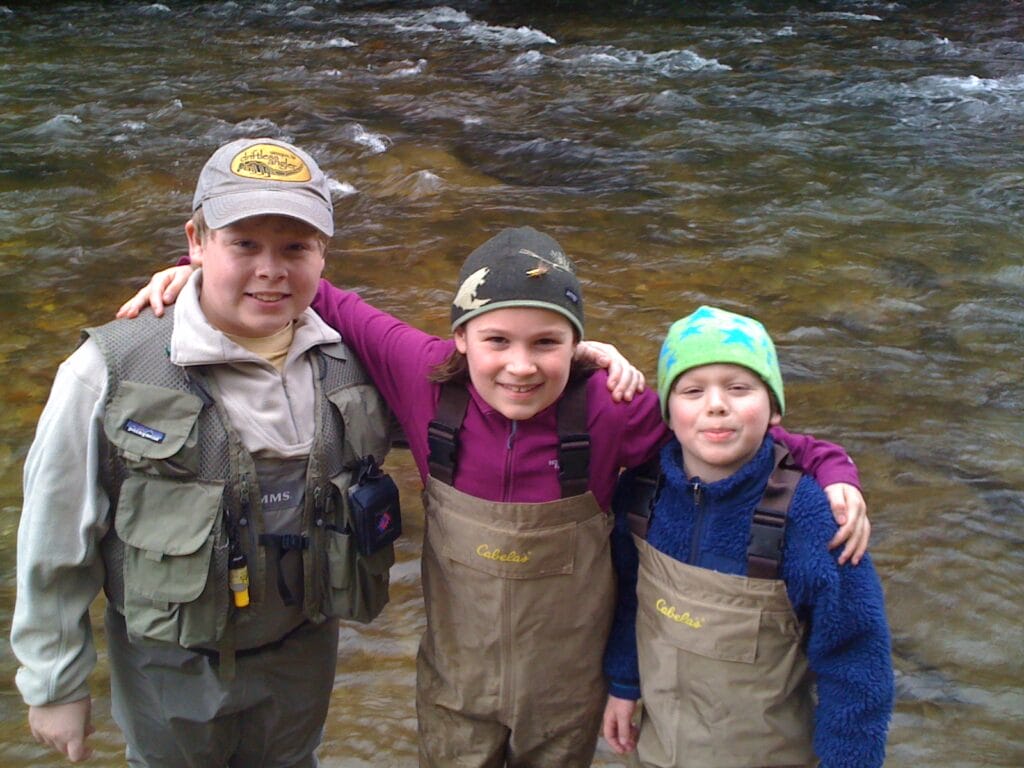
Mihalas said students will also get a deeper look into the importance of public lands.
“A lot of the college kids are environmental majors of some sort and have been taught about things like the political dynamics of public lands,” she said. “Some of the high school students might not understand how precious public lands can be, and how contentious they can be, too.
“This will be a great opportunity for them to learn about all the work that goes into maintaining these lands and keeping them for all of us.”
It’s hard to imagine there would be a better person than Mihalas to share that message.
This Land is Your Land
Keeping public lands in public hands ensures future generations can experience the same outdoor opportunities we cherish today.

